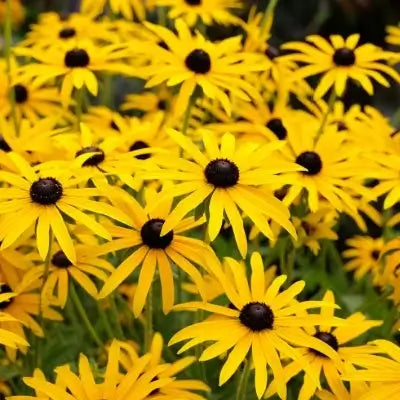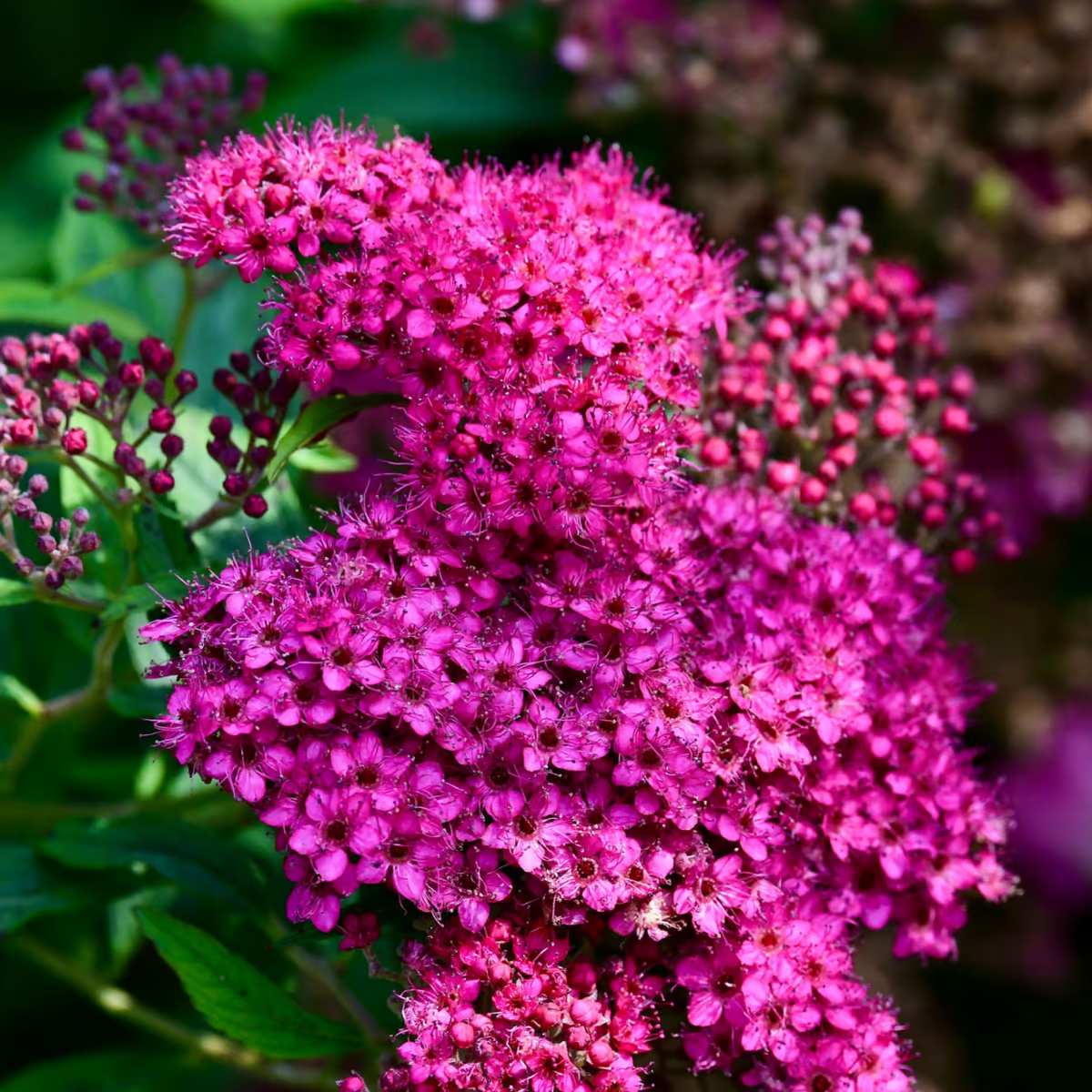
perennial plants
Beautiful vibrant pink blooms
Thrives in various soil types
Compact and manageable growth
Thrives in
ZONE 5ZONE 6ZONE 7ZONE 8ZONE 9ZONE 10Planting Season:
Nov-AprilWhen you add one plant to cart, it automatically adds the second one free on Bogo deals.
Pink Spiraea is known for its profuse clusters of small, rosy, deep rose-colored flowers appearing in late spring to early summer. These blooms add color to your landscape and attract pollinators like butterflies and bees. This beautiful ornamental plant has a long blooming cycle and is hardy in zones 4-9. Featuring rust-resistant foliage and an extended blooming period, the bush is a reliable addition to any landscape in zones 4-9.
When you're looking for a charming floral plant, it is an excellent choice. The mid-sized flowering shrubs work well in a variety of settings. They release a dense cluster of upright steps coated in tiny leaves and flowers. Each plant grows to a tidy, rounded clump 3 feet high and 3 feet wide. They feature small, teardrop-shaped leaves with serrated edges.
This attractive plant is made more notable due to its shifting leaf colors. In spring and summer, this shrub's leaves are medium green. As the leaves mature, they get darker and more colorful. They develop burgundy and purple hues that compliment the flowers' pastel colors. In fall, the plant's leaves brighten to shades of gold and orange. This wide range of colors allows the plant to brighten your landscape outside its blooming season. They are stunning landscapes.
This plant produces large bunches of flowers throughout spring. At the tip of each stem, a cluster of blooms around three to five inches in width develops. The bunch contains several petite flowers, five petals, and long, delicate stamens. The flowers are a dramatic rose shade that usually lightens at the tip of the petal and is darker near the center. The flowers bloom intermittently, so while some clusters are reaching the end of their lifespan, others are just starting. This ensures you get months of beautiful flowers.
The cheerful pastel colors of them add charm to any garden. Its size and shape make it a favorite addition to flowerbeds because it can easily fill spaces. Since it creates such thick clusters of flowers and leaves, it can add color and attract many butterflies to decorative borders. This plant also does very well in containers, so some people like to use it to fill a pot, planter, or window box.
How Do You Care For Them
They do not need much attention; they only need to be watered during dry seasons and can be pruned once a year. The area around the stem should be mulched to conserve moisture and minimize weed growth, and removal of the faded flower promotes further flowering.
Where is the best place to plant them?
It needs full sun but can cope in partially shaded locations. It grows best in well-draining soil and is well-suited to borders, garden beds, or even low hedging.
How long does it bloom?
It is an early summer flowering shrub that can feature fuchsia flowers which last for between four to six weeks. It may bloom at any time, but with the right maintenance and deadheading, it may bloom during the summer.
What is the best fertilizer for it?
It prefers a balanced, slow-release fertilizer best provided through a 10-10-10 formulation. Use it at the beginning of spring to enhance the plant's health and flowering throughout the year.
What Is The Lifespan Of Them
If grown correctly, Pink Spiralea may live for an average of 15-20 years or even longer. However, without proper pruning and fertilizing, it is likely to have a short life span and dull color.

Bloom Season
Summer
Bloom/Foliage Color
Pink
Height at Maturity
Under 10 Feet
Care
Pink Spirea thrives in well-drained soil. Water often to keep the dirt moist, but avoid overwatering. Trim after flowering to maintain shape and remove dead branches. Fertilize in spring to stimulate healthy growth and vibrant flowers.
Plant Reproduction
Pink Spirea spreads via suckers and self-seeding.
Plant bare-root shrubs during the more excellent spring or fall months, from November through April. Dig a hole twice as wide as the root system and slightly more profound than its height. Position the shrub so that the top of the roots is level with the ground, and put back the soil dug over the roots. Apply a 2-3 inch layer of mulch around the base to retain moisture and suppress weeds, ensuring the mulch does not touch the shrub's stem. Water regularly, especially during the first year, to establish strong roots. Prune shrubs as needed to promote healthy growth. In the spring, fertilize with a balanced, slow-release fertilizer suited to the specific needs of the shrub.
Shipping date depends on the date displayed and chosen when you order from the product's page.
We only accept returns on plants verified dead. If you think your plants have died, we offer a 1 year warranty, please use use this File a Claim Link to verify dead plants and start with return warranty process.






Vibrant Flower Clusters:
Pink Spirea produces large clusters of deep rose-colored flowers, adding vibrant color to your garden.
Attracts Pollinators:
Its bright blooms attract butterflies and bees, enhancing your garden’s ecosystem.
Extended Blooming Period:
Pink Spirea offers months of floral beauty with intermittent blooming throughout the season.
Seasonal Foliage Colors:
The leaves transition from green to burgundy, purple, and then gold and orange, providing year-round interest.
Caring Tips
Each box contains detailed care instructions and information about your product. But here's the basics.
Care Tips
Pink Spirea thrives in well-drained soil. Water often to keep the dirt moist, but avoid overwatering. Trim after flowering to maintain shape and remove dead branches. Fertilize in spring to stimulate healthy growth and vibrant flowers.
Light Requirements
Pink Spirea thrives best in full sun to partial shade. Optimal blooming requires at least 4-6 hours of direct sunlight daily. While it can tolerate some shade, too much may result in fewer blooms.
Hardy Planting Zones
5 • 6 • 7 • 8 • 9 • 10
How often should I water my plants?
How do I know if my plant is getting too much or too little sunlight?
What should I do to prepare my plants for winter?
What are the signs that my plant needs fertilizing?
How can I prevent pests from damaging my plants?
How do I choose the right plant for my climate zone?